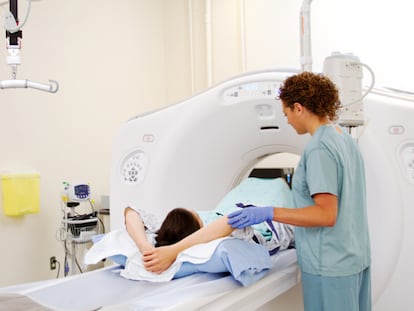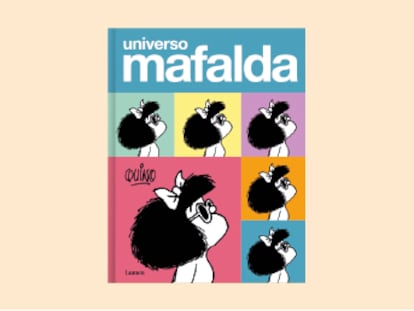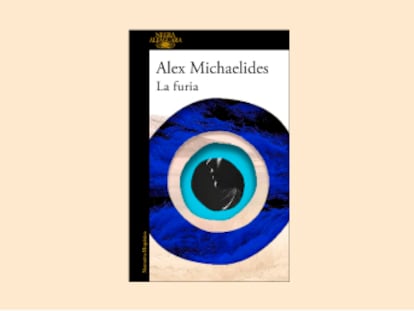Anatomy of Berluscoland
Dozens of official and private flights carry to Sardinia every weekend a cohort of beauties who entertain the head of the Italian government and his friends. Following the first lady's accusations and the Noemigate, Italy reveals to the world its air of lower empire. Will Berlusconi have to pay a price?
Endless gardens, artificial lakes, sexual organs on display, lesbian games, special effects, free pizza and ice cream... A geriatric rest home full of terrific bodies. The photographs censored in Italy following Silvio Berlusconi's initiative illustrate the uninhibited routine at the mansion the head of State owns on the Emerald Coast of Sardinia.
Monday June 1, the gardens of the Quirinal presidential palace, Day of the Republic: hundreds of the regime's grandees go up to greet the prime minister, hounded by the reactions to news of his friendship with Noemi Letizia, an 18 year old girl. Seventy percent of those distinguished personalities approach Mr Berlusconi with their daughters in tow, not their wives. Welcome to Berluscoland, the country where all young girls want to be veline (TV hostesses).
Let us now visit Villa Certosa, the mysterious Sardinian mansion property of the Milanese tycoon who is currently Prime Minister and rotating president of the G-8, as well as leader of the People of Freedom party, elected by show of hands. Since it was revealed that Noemi Letizia, the 18 year old young woman from Naples who calls Berlusconi "Papi", spent New Year's eve at the house along with 30 other veline (TV hostesses), all Italians fantasize with that name: Villa Certosa. The property is every mobster's dream, especially if he is under arrest: olive and palm trees, pools everywhere, free ice cream and pizza at will, artificial lakes, an amphitheater where the unavoidable Mariano Apicella, who has published two records with Berlusconi as song writer, plays and sings his Neapolitan songs...
The turquoise sea, the great main house, the secret chambers, the underground canal which directly connects the villa to the sea - inspired by a James Bond film - the 60 hectares park grounds, the bungalows the owner offers his female guests (always more girls than men, a ratio of four to one), all of it refurbished and renovated in 2006 for a cool 12 million Euros.
The villa even has, according to a very trustworthy source, an underground nuclear shelter, and the supplies are regularly restocked. And then there's the veline, the beauties who, perhaps, who knows, might one day characterize this bizarre period of History as Berlusconism-Velinism.
The beauty of the word velina (not to be confused with bellina) is as suggestive as its origin: the velina was the note sent to newspapers from the fascist censors' office, explaining what could and could not be written. This description as something out of context was applied, in time, to the TV hostesses who performed tasks beyond their decorative duties, next to the table where the journalist reads the news for instance. "The velina is here". It stuck, and has carried on to this day.
Even though it has always been a well known secret, Italy has had no moral qualms about living with the fact that Silvio Berlusconi has met, courted, invited, recommended, employed, helped and promoted hundreds of veline during his political career. The list is too long and anonymous to be printed here.
During a decade of visits, parties and short trips, almost all of these veline, and many more, would have logically stopped by Villa Certosa. The best bodies in Italy. The prettiest and most innocent faces. Aspiring models, actresses, cabaret stars, majorettes, hostesses. Very young girls, 17 and 18 to 28 and 29 years old, no more: butterflies freshly out of the family cocoon who have become part of the sheik's harem. When he welcomes them into his fold, according to Concita de Gregorio, editor of daily L'Unit¨¢, "he gives them a jewel shaped like a butterfly, like a sort of contract or seal. It is the sultan's seal".
For the past 15 years, Berlusconi's show-politics, his personalistic and plebiscitary disposition, his fascination as a generous and womanizing tycoon, have seduced the Italian voting and TV-watching masses with his jokes, sexist style, blunders, social rise, electoral triumphs, even the victories and signings of his football team (this week he froze the announcement of Kaka's transfer until Monday so as not to lose a single vote).
All this is a natural part of his a-political and a-cultural baggage, of his open and mundane populism, paradoxically rooted in a traditionalist and Catholic non-political non-program, vaguely inspired on "God, Country and Family". "And veline", it should be added.
Villa Certosa is il Cavaliere's most discrete status symbol, his not just nuclear shelter. It is his treasure, his best kept secret, the place where this nearly 73 year old man, arrogant and millionaire, congenial and media friendly, hosts his male and female friends, leads informal cabinet meetings, closes or prepares business dealings and political feats, smothers with attentions the leaders of the right from all over the world, watches over his chrysalises, sits his veline on his knees and promenades them on golf carts around the park, a militarized and Top-Secret area since 2006.
As Antonello Zappadu's photographs tell, Villa Certosa is also the place where the megalomaniac magnate, the excessive, comical character and pathological liar, forgets that he is a grandfather (and that he left the conjugal bedroom a decade ago), and becomes a macho once again, the sheik of the harem, Super Silvio, permatanned and operated upon (on his prostate as well), while Italy whispers that he takes too much Viagra and his doctors fear for his heart.
Villa Certosa is also the place where his Neapolitan friend Noemi Letizia was invited, just after her eighteenth birthday, to spend the New-Year holiday along with 30 other colleagues and a dozen of Berlusconism's grandees, nearly all of them in their seventies like him: gerontocracy and spectacular girls.
As the philosopher Paolo Flores d'Arcais says, "The question is not what happens or has happened at Villa Certosa, but rather what would have happened in the United States if it had become public knowledge that Obama had spent his Christmas holidays with thirty 18 year old cabaret stars and without his wife, or in Germany if they found out that Angela Merkel goes on vacation with 30 hot gigolos".
What matters, in the case of these young Italian women, is fulfilling a dream, reaching a goal: meeting Silvio and his powerful friends, working in television and maybe making it into politics, which in the country of the RAI and Mediaset, controlled by one man, amounts to the same thing.
Many of these young women have tragically limited themselves to embodying their parents' model, the conformism of the disenchanted post-68 generation which fell into mediocrity in front of the tv set during the eighties and nineties, watching the Christian-Democrats dissolve, Bettino Craxi go into exile, how the once brilliant Italian left became an oligarchic, boring and distant caste after the fall of the Berlin Wall.
Some might find this vision of the world and social rise repugnant; to others it will seem practical and human. But, what better way to succeed in this Italy of television than being very, very close to the great boss of European, and perhaps world television?
Berlusconi, wrote Eugenio Scalfari, is the Sun King. In the words of a Sardinian politician, "If you get close to the sun, the sun enlightens and warms you". And according to another master journalist, Giancarlo Santalmessi, who has suffered the wrath of the conservatives, "Half of Italy works for Berlusconi, the other half whishes they did".
Going to Villa Certosa guarantees these girls their place under the sun, a phone number they can call, maybe a recommendation from the emperor, a raised thumb, a casting to go to upon their return to Rome or Milan, on Sunday night or Monday morning, after the long and fun nights, talking politics with Silvio, walking, going shopping at the Porto Rotondo mall (Papi pays, up to 1.500 Euros per girl), dancing frantically, maybe stripping motivated by alcohol rather than money, machismo of the worst kind.
It is not easy to be among the chosen ones, to make it to the vestal of Villa Certosa, insists a Sardinian politician, who prefers to remain anonymous for security reasons: "Those who go there are important, those who sleep there are very important, and those who spend the holidays are in Caesar's heart".
Caesar, who started out in real estate, has seven other villas in Sardinia, another one in Antigua, countless mansions in Rome and Milan, but Villa Certosa is the measure of all things. Even cabinet ministers are divided between those who go very often (like the quiet Gianni Letta), and those who have only been there once or have only gone to attend a cabinet (or board) meeting during the holidays.
Among the female ministers, Mara Carfagna, minister for Equal Opportunities, has been there the most, and she has proved her loyalty, as she has been the only one who has dared to defend his actions during the grotesque Noemigate. In her opinion, the attacks on Berlusconi are baseless and motivated by envy, because he is a "good" person.
For the girls, the best way to enter is through the old man's expert eye. As in the case of Noemi Letizia, Carfagna herself and hundreds of other girls. Noemi, a sweet girl who grew up in the surroundings of the Neapolitan mafia, wanted to be an artist. So she made herself a portfolio and sent it to an agency in Rome. Emilio Fede, a journalist at Canale 4 and close friend of Berlusconi's, picked it up, carried it under his arm, and left it carelessly on the table. His capo picked up the phone and dialed the girl's mobile. He told her she had an angelical gaze and that she had to stay that way, pure.
That was in October, tells Gino, the construction worker who was Noemi's boyfriend until Papi came along, in an interview with La Repubblica. Soon afterwards, Noemi was seen at a fashion party held at Villa Madarma, and at another one organized by AC Milan. On both occasions she was seated at the presidential table. According to Berlusconi and her parents, it's an old friendship; Gino and one of Noemi's aunts have denied it.
Whatever the case, by December Noemi was already at Villa Certosa with her friend Roberta, one the three friends with whom she recorded a video now doing the rounds on Youtube where they declare themselves to be fantastic and out of reach. Although, if we think about it, it might have been before, because Noemi herself declared, when she started being well known, that she had seen Papi often, that he was so busy that he couldn't always make it to Naples, and that they sang Apicella's songs together. Now she says in an interview in Chi magazine - owned, of course, by Berlusconi - in a final and desperate attempt to save face, that she is still a virgin.
Another way to enter Villa Certosa, to reach the status of butterfly and become part of the great entomologist's collection, is to know the sultan's friends. It's better if they are VIP business men who belong to the strictly judicial circle (the judiciary really brings people together), such as Marcello dell'Utri, who was convicted to nine years for mobster complicity; The boss of the Renault F1 team and off shore antics companion Flavio Briatore (who recommended the British lawyer David Mills, corrupt co-creator of the Fininvest B empire, to Berlusconi), or the complacent Fede Confalonieri, president of Mediaset.
It can also come in handy to know those brilliant and elderly reporters, shining stars in the world of official television, people like Fede (creator of the most surrealistic news show in the continent), or the always complacent Bruno Vespa, capable of interviewing the master 12 times a year and always avoiding the uncomfortable question.
They all represent the essence of Berlusconism-Velinism, and have therefore been visiting the Sardinian house for years. They seek security, companionship, warmth, peace, relaxation and beautiful bodies to mitigate the stressful and overwhelming business of politics, corruption and the always tiresome (for their back that is) antechamber journalism.
There are, of course, intermediate ways, various suppliers, fans of gineceo sports, pandering mothers willing to renovate for free the magician's box of tricks, ministers, vice-ministers and deputy secretaries willing to bring something new to the evenings, that enormous circle formed by the daughters of friends, acquaintances, vassals, employees, the cousin with promising curves of the doorman, the bodyguard or the cook, the carabiniero's niece, the aspiring model who e-mails her photographs to the Palazzo Chigi with her cell phone number written in a font imitating lipstick.
All of Italy is in on it, the whole country knows about it, the problem is everyone talks about it, but nobody tells it like it is. Satraps, emperors, monarchs and commanders have all historically filled their salons with young women, but now people are afraid, the omert¨¢ is an essential requisite if the hypocrisy is not to end, information is directly or indirectly controlled by the emperor (institutional advertising, public funds, promises, loans...), whoever fails to toe the line can lose his or her job, the Roman Church must not find out (which is why its criticism never goes beyond calls for sobriety), and on top of it all there is a crisis, and we live in the prototypical subterranean country, that wonderful belpaese that is always proud of its homespun talent for muddling through, "France and Spain don't matter, what matters is mangiare (eating)".
The arrival of television veline to politics, the origin of this moral crisis, is the inevitable consequence of History and the system. Forza Italia has never been a party, but rather a group of tifosi, of employees bossed around by Dell'Ultri who in 1994 hired Publitalia's whole secretarial staff in a hurry in order to fill the lists in time.
Its successor, the People of Libery, is not a party either, but rather a flood of middling advisers, submissive managers and pretty faces with no tradition, ideology or base. Television and propaganda are the only policy; and politics is acted out on television. Italy is still a paradise for those with connections - those who have no friends are orphans - and the great electrical engineer is called Silvio. Silvio aggiustatutto.
Berlusconi is the benefactor; schools and houses are filled to the brim with beautiful Uranites, and Villa Certosa is where they are within range.
Listen to Noemi Letizia's former teacher: "It makes a lot of sense, he will help her, we all benefit from having friends, a doctor to write prescriptions".
Elisa Alloro, one of the veline who has been in the main residence, has published an interesting book this week titled Noi, le ragazze di Silvio. She reveals that she has also called Berlusconi Papi, and not just her, for a long time before Cinderella Noemi appeared in il Cavaliere's life.
"He's a fountain of knowledge", writes the 32 year old velina journalist about the great leader. Born in Reggio Calabria, Alloro participated in the political instruction course for 25 PDL veline, taught with the European elections in mind by, among others, the minister of Foreign Affairs, Franco Frattini, and the vice-president of the European Parliament, Mario Mauro, at the Prime Minister's request.
Hostess Alloro was preselected by il Cavaliere, along with, among others, Eleonora Gaggioli, aspiring actress; Camilla Ferranti, aspiring hostess; Angela Sozio, a Big Brother redhead photographed by Zappadu in 2007 on the premier's lap (along with four others); and Barbara Matera, a participant in the Miss Italia de la Puglia pageant, friend of Doctor Letta, and finally (after Veronica Lario's "I accuse"), the only velina candidate chosen among the 25 pre-candidates.
The first one to call Berlusconi Papi, reveals Alloro, was Renata, a Brazilian velina and a staunch milanista. The name spread like a virus. "And now, many ragazze call him by that name, it's a tradition, perhaps rooted in a tacit understanding, a sort of codename born perhaps of the atavistic fear of being intercepted (by phone taps)".
The 100 page book takes the form of a letter to Veronica Lario, dismisses the "trinkets" accusation and defends the boss: "He is a fountain of wisdom, every minute spent with him is like a divine gift". She writes of meeting Berlusconi in 2004 while working for Mediaset. She had to interview him about the bridge over the Messina Straight, but in the blink of an eye she found herself catapulted to Sardinia, "to a business lunch with professionals from the presidential staff. I was the only woman".
They arrived together from the Roman airport of Ciampino, departure point for all official State trips, aboard the presidential plane; during the trip she found out that Berlusconi knew all about her ("he showed me a fat dossier"), and he made her a job offer that she refused. "He explained to me that he was organizing a task-force made up of 50 young journalists who would work as a liaison press-office between Rome and Brussels. It would be extremely good for my CV, he told me..." .
After lunch, a new flight in the presidential plane to San Siro, where AC Milan was playing. Official motorcade, screaming sirens, and a one more flight to Ciampino.
After leaving Mediaset, she still met with Berlusconi: "Sometimes he has invited me to Villa Certosa, to dinners with dozens of guests". She remembers Noemi vaguely ("we were briefly introduced at a party"). What was impossible to forget, she writes, was the "crazy and ludicrous dance" by the twins from Montenegro, "as the Prime Minister looked on with worry". As well as "other unannounced feminine and masculine visits to his bedroom doors".
That's Italy, as the first lady Veronica Lario has said, not so much disgusted as sick of it, patriotic, revolutionary, like Lysistrata, when se condemns the rot of Berlusconiism-Velinism: "Fathers willing to offer their vestals to the dragon", "unashamedly political and sexist trinkets", a husband and Prime Minister who "frequents minors, and that is not right". Impossible to say more with fewer words.
Il Cavaliere's team is aware of the needs. Journalists who cover the premier's movements say that there is a beautiful young woman in the press team who travels everywhere with him even though she is barely capable of tying her own shoelaces. His publicist, Miti Simonetto, hides the flaws as well as she can and tries to make Caesar seem honest.
There is another mysterious character, a woman in her forties, dark haired, attractive, always in a suit, that Zappadu has often photographed at the Olbia airport. She is Sabina Began (SB), the favorite: the Roman celebrity press calls her the queen bee. On Italy's Liberation Day, April 25th 2008, during the victory celebrations after the elections, Berlusconi, the President of the Senate, Renato Schifani, Apicella and other leaders, were surrounded by a gaggle of shapely women. Don Silvio only had eyes for SB, who had tattooed on her ankle "SB, the encounter that changed my life". As he had her on his knees, and whispered Malafemmena, Berlusconi said: "If there were a photographer here, this picture would be worth 100.000 Euros".
Like Lario has said, the political story in play here goes far beyond the Noemi case, poor Noemi is merely the latest victim of this huge Big Brother. Is Villa Certosa, like the Arabian Nights, a somewhat kitsch luxury bunker where erotic games take place, or Berluscoland, or something worse and more lustful?
Probably neither and all those things at once, answer different Sardinian sources. And Zappadu's photographs introduce us in this underworld. Berluscoland is beautiful, that cannot be denied, although nature in Sardinia is far more rugged and less fake than those postcards filled with manicured lawns, round medicinal herbs gardens and false naghuras towers.
The first thing one notices is the excess. Sixty hectares is a lot of terrain. Especially in the Emerald Coast. It is enough for two private beaches, three artificial lakes, half a dozen pools, the amphitheatre where Apicella (the singer-songwriter for whom Berlusconi writes), the dancers and the flamenco dancers (flamenco fans are still wondering who that intruder is, and what she is doing there) all perform.
On one side of the estate is Country, one of the prime minister's favorite spots, a club with candles, oriental rugs and a private area ironically called the Harem. But candid souls should not worry. None of the thousands who have visited Villa Certosa have ever spoken about sex. There is no sex there. Nothing more than ice cream.
Beppe Severgnini, a columnist for Il Corriere, explains: "Villa Certosa is reaching legendary proportions in national fantasies. The main character's friends only enrich the setting when they try to downplay it". Marcello Dell'Utri: "There's an ice cream parlor. You go and they serve you all the ice cream you want. For free. If you think about it, it's a great find". Flavio Briatore: "There's the volcano game. You talk about this and that, and when the group approaches the lake, Berlusconi acts as if he were worried that Sardinia is a seismic area. And at that particular moment you hear a huge explosion, with flame-like effects...". Sando Bondi, minister of Culture, trying to explain the former Czech premier Topolanek's nudity: "Bah... On the other hand, consider that the villa is a few meters away from the sea. A sea, as you will know, of an absolute beauty".
Dell'Utri has been unable to deny that, indeed, apart from the ice cream and the pizza, the estate is always filled with beautiful young women, walking around and bathing, taking showers and exhibiting themselves.
The most complicated thing for Berlusconi won't be explaining the photographs, which he has already defined as "useless". The problem is if there are other, more compromising ones. "Berlusconi knows there is a mole in Villa Certosa. Someone from inside has betrayed him, but he doesn't know who it is", explains Marco Mostallino, a local journalist. "Berlusconi must think it's one of the security guards. It is not by coincidence that he has accused his wife, through his brother's newspaper, of having an affair with her bodyguard".
Villa Certosa is supervised round the clock like a fortress by the military and carabinieri. There are also private guards and others from other places. The history of security in the Emerald Coast is linked to the Aga Khan, the first tourism entrepreneur in Sardinia, he started with vigilantes. "The Aga Khan hired all available men, and many of them had a criminal record", Mostallino says.
A few years later, Berlusconi arrived on the island. "He came with his brother Paolo in 1981 or 1982", recalls the Sardinian politician. "His plan was to build two million cubic meters over the sea, in a 200 hectare estate to the South of Olbia, between Le Saline and Capo Cerasso. In order to overwhelm, he came with enormous books which according to him included an estimate of the economic impact. He travelled with a retinue of architects, engineers, fiscal advisers, economists. It took ten years for the project to get the green light, and he was only allowed a quarter of the original extension, in the mountain, far from the sea. But when it was approved, he didn't have the money. It was 1993 and he immediately went into politics".
Silvio and Paolo built the villa during the early 90s. Eventually, they turned it into a house worthy of s James Bond film. The ironic Severgnini has written in Il Corriere della Sera that one day someone will write the story of Villa Certosa: "The cynicism of Italian elasticity would allow most, if not everything, to be told. The final obstacle is official coherence. Politicians, even those with fewer prejudices, are not yet ready to admit what they do, fearing that someone will compare it with what they say".
Tu suscripci¨®n se est¨¢ usando en otro dispositivo
?Quieres a?adir otro usuario a tu suscripci¨®n?
Si contin¨²as leyendo en este dispositivo, no se podr¨¢ leer en el otro.
FlechaTu suscripci¨®n se est¨¢ usando en otro dispositivo y solo puedes acceder a EL PA?S desde un dispositivo a la vez.
Si quieres compartir tu cuenta, cambia tu suscripci¨®n a la modalidad Premium, as¨ª podr¨¢s a?adir otro usuario. Cada uno acceder¨¢ con su propia cuenta de email, lo que os permitir¨¢ personalizar vuestra experiencia en EL PA?S.
En el caso de no saber qui¨¦n est¨¢ usando tu cuenta, te recomendamos cambiar tu contrase?a aqu¨ª.
Si decides continuar compartiendo tu cuenta, este mensaje se mostrar¨¢ en tu dispositivo y en el de la otra persona que est¨¢ usando tu cuenta de forma indefinida, afectando a tu experiencia de lectura. Puedes consultar aqu¨ª los t¨¦rminos y condiciones de la suscripci¨®n digital.
































































